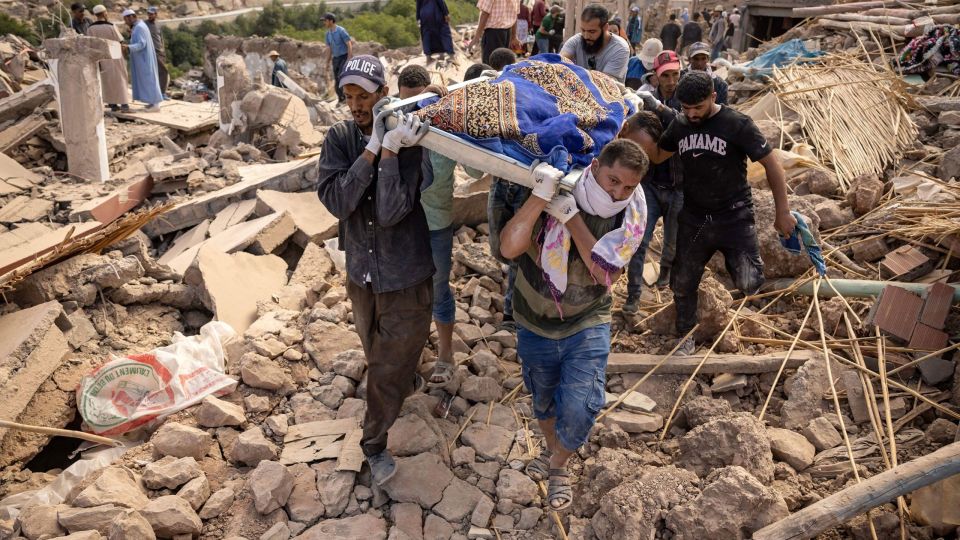from MOHAMED EL KADIRI in Marrakech, Morocco
Morocco Bureau
MARRAKESH, (CAJ News) – AMID warning of other approaching threats to survivors, the humanitarian impact continues to escalate after the magnitude-6.8m earthquake that occurred in Morocco on September 8.
Local and international aid agencies are racing against time in rescue efforts after the disaster that hit the High Atlas Mountain range and left about 3 000 people dead.
The combined toll of those killed and injured in the quake has now reached nearly 6 000 with the hardest hit areas being the provinces and municipalities of al-Haouz, Marrakesh, Ouarzazate, Azilal, Chichaoua and Taroudant.
The United Nations (UN) has estimated the natural disaster has impacted over 300 000 people in Morocco.
The UN Children’s Fund (UNICEF) reports at least 100 000 impacted children, and thousands of destroyed houses that resulted in a huge number of displaced families.
In addition schools, hospitals and other medical and educational facilities have been damaged or destroyed across the affected area.
Initial assessments indicate that water and sanitation as well as shelter, health, and food assistance are required.
Families were still trapped under the rubble of their homes, road blockages and difficult geographic conditions remain challenging to conduct search and rescue interventions.
Tractors and forklifts are driving around trying to move the rocks away to see if they would find people trapped underneath.
“The most acute phase is probably over now and it’s looking less and less likely that we’ll find anyone alive, but they might still be able to find dead bodies to properly bury them,” said John Johnson, Doctors Without Borders emergency coordinator.
Thousands of residents sought refuge outdoors, fearing additional seismic activity and enduring unsettling aftershocks.
Government authorities are leading response efforts. National rescue and response mechanisms have been activated and civil protection units deployed to increase stocks in blood banks and ensure the supply of essential resources including water, food, tents and blankets to affected areas.
Moroccan Red Crescent (MRCS) teams continue to respond on the ground providing first aid, psychosocial support and helping transport the injured to hospitals.
King Mohammed VI has instructed his government to speed field relief efforts and provide care to the victims of the earthquake.
“The UN continues close communication with the authorities to offer its support in the assessment, coordination, and response to the situation,” said a UN spokesperson.
The European Commission’s Directorate-General for European Civil Protection and Humanitarian Aid Operations (ECHO) has allocated €200 000 in support of the Morocco Red Crescent.
This is in addition to €800 000 from the Acute Large Emergency Response Tool to support humanitarian efforts.
ECHO staff and UN Disaster Assessment and Coordination (UNDAC) teams have been deployed in Rabat.
The Copernicus Emergency Management Service was activated in rapid mapping mode last Saturday. Five maps have been produced so far.
Aid workers of Human Appeal, the international humanitarian charity, warned of freezing weather complicating things.
The organisation has dispatched a team of aid experts after the earthquake, to support its local partner on the ground.
It is providing aid worth US$250 000.
“We have over 30 years’ experience in humanitarian emergencies like this one in Morocco,” said Khalil Benkhalil, Human Appeal’s Reach Manager, currently stationed in Marrakesh.
Their experience makes them concerned about the freezing temperatures those made homeless will soon endure across impacted villages in the high-altitude Atlas Mountains.
“Winter is a killer in such conditions,” Benkhalil said.
– CAJ News

